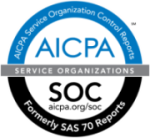Remember back in May when I said I am a fan of podcasts? Well, today’s blog is inspired by another one. Planet Money is an entertaining, business-focused podcast that covers myriad topics: presidential budgets, trademarks, slot machines, and—what I want to discuss today—the history of the spreadsheet.
Visit any office and just say the word “spreadsheet.” I can safely guarantee that most people sitting in cubicles across the United States will immediately visualize the trademark black grid on a white field from Microsoft Excel, and that ubiquity is precisely what “Episode 606: Spreadsheets!” addressed. The podcast was, admittedly, a rerun of a rerun that I queued up while hammering out projects at my desk, but, when it finally had its moment to shine in my playlist, I couldn’t tear myself away.
Hosts David Kestenbaum and Jacob Goldstein open by discussing an oddly prescient 30-year-old article that predicted how utilizing the then newly created spreadsheet program would reduce businesses’ understanding of the world to a “reality by the numbers.” “What,” Kestenbaum asks when summarizing the bulk of the article’s content, “does it mean when people start to think that numbers are reality?” As the episode winds its way from the creation of the spreadsheet to the advent of annual financial modeling competitions (that award the winner a “golden keyboard”), you begin to understand just how transformative this software became.
Spreadsheets used to be literal 11×17-inch pieces of paper that, just like today’s Excel files, contained rows of calculations providing a “detailed way to look at … any business.” Depending on the client, these spreadsheets might require multiple taped-together sheets of paper to list information like the cost of individual manufacturing materials and the various sources of revenue, and they often took an accountant several days to complete. Asking the accountant to make adjustments to values in the spreadsheet—like “What happens if I spend just a little more on cocoa”—would mean more days’ worth of work.
That time investment is precisely what inspired Dan Bricklin to create VisiCalc: the first spreadsheet program. Bricklin’s spreadsheet automated calculations, which reduced the amount of time needed to perform accounting work from days to mere hours.
“Revolutionary” seems like such an understatement, but, suffice it to say, this meant significant changes to the accounting industry. As Kestenbaum and Goldstein point out, accounting offices needed far fewer workers to handle the drudgery of calculating (and re-calculating), but accountants could take on even more clients and answer increasingly complex questions about businesses. By being able to easily model different outcomes—like what happens if a business chooses a different manufacturer, reduces employee wages, or raises the price of their products—spreadsheets became indispensable tools for accountants and gave rise to modern-day finance markets that use spreadsheets to predict the value of business deals that are measured in millions (and billions) of dollars.
In short: spreadsheets let accountants and financiers focus on providing their expertise, rather than being mired in manual calculations. That was a lightbulb moment that led to me noticing all the parallels between the automation of spreadsheet calculations and the automation of tax form data entry. Both reduce the amount of time required to produce a client outcome, which translates to fewer employees dedicated to completing mundane tasks and more time for focusing on core competencies.
Sound familiar?
Aside from reducing overhead dedicated to seasonal workers, software-as-a-service (SaaS) products like GruntWorx improve workflow efficiency, freeing up time that tax professionals can spend on recruiting new clients and providing more tax advice to existing clients. As more preparers take advantage of products like Organize, Populate, and Trades, it’s possible that the entire industry will shift away from manually performing these tasks. If that happens, how will tax pros invest their time?







